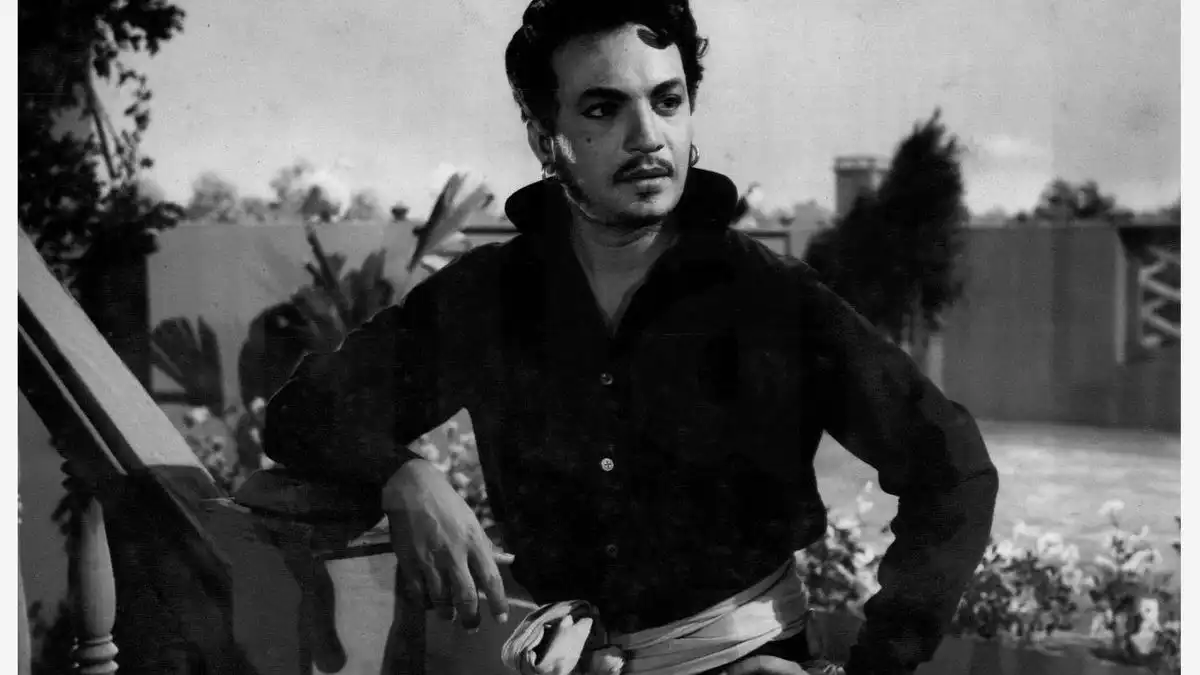Antony Firingee: Does the Uttam Kumar, Tanuja Bengali classic stand the test of time?
Uttam Kumar’s Antony Firingee completes 55 years of release on 6 January
Jan 04, 2022

Legendary Bengali actor Uttam Kumar memorialised the story of Anthony Firingi, a Bengali poet of Portuguese origin by essaying the man in a 1967 National Award-winning drama Antony Firingee. Despite his profound influence on Bengali folk music, little to no literary scholarship exists on the man himself. Sunil Bannerjee’s directorial attempted to dramatise Antony Firingi’s life, but it is predominantly a musical romantic drama. Tanuja plays Nirupama, a courtesan Antony falls in love with after listening to her sing.
Nearly five and a half decades after its release, Antony Firingee might come across as unsubtle and broad-stroke. The film establishes Antony’s otherness right at the onset. In the second half of the eighteenth century, there was an advent of missionaries and scholars in the country since the East India Company anticipated a cultural conquest was necessary in order to cement their stronghold over the territories. Antony Firingee’s father was one man who relocated to Bengal and found their home on Indian soil. The film opens with a monologue, which tells how Antony’s father owned a common salt business, while his mother was a Bengali woman. The film, in not-so-subtle scenes, shows the dilemma of identity Anglo-Indians in India faced at the time. Both Antony’s brother and his friend display an obvious dislike for the native Bengalis, reflecting how Anglo-Indians aspired to be included in British society, and also considered themselves of carrying forward the British heritage.
Hence, when Antony does not participate actively in the Anglo-Indian community activities, he is criticised both by his brother and his friend for being “unfaithful”. Even when she meets Nirupama for the first time, she is in disbelief that Antony could fall in love with a woman she considers to be of an inferior race. To paint the contrast between Antony and those surrounding him, the former is swathed in nationalistic colours. When he is taken to a French parlour, he drinks away with little to no interest in the music playing there. He is resolute in his admiration of Bengali music, so he waits outside Nirupama’s sprawling mansion to listen to her practice. Nirupama, on the other hand, is also dismissive of the West. When Antony first requests her for a musical performance, she replies saying he’s a better fit for a French parlour than at a courtesan’s house. She remains staunch in her disposition towards Antony until he performs her song at a musical face-off, and is praised by all for his clear diction and soulful rendition.
Through the mouthpiece of Antony, the film also makes a comment on how classical music has always been considered high art as compared to folk music. Antony remarks, in broken sentences, how classical music may sometimes alienate the listeners. “It lacks heart,” he says, before crooning Ami Je Jolshaghor’e, much to Nirupama and others’ delight.
Since it is a love story, the film takes many cinematic liberties, the first, in creating the character of Nirupama. According to historical accounts, Antony married a Hindu Bengali widow named Saudamini, who was burnt alive for having remarried, that too a Christian man. The director tweaks the story to make his female protagonist a courtesan, who takes to this life after she is widowed, kidnapped and raped by a friend, and sold off to a procurer. She then trains in music as a means to earn a living.
This change feels exceptionally manipulative. Not only because the magnification of Nirupama’s victimhood is gratuitous, but because it’s also employed to valorise Antony for not being affected by Nirupama’s past. Antony remarks because of his Portuguese descent, he has not learnt to censor his words. He is not aware of the regressive Hindu practices like Sati, nor of caste and religion barriers. This is what made Antony accepting of people around him, irrespective of their identities. Antony is shown as being overly generous. He hands over his business to his manager in a heartbeat, and most loyal audience is always a group of servants who love and revere him.
Antony Firingee is definitely not a biopic, neither does it provide much insight into the life of this enigmatic personality. But the film’s soundtrack, with compositions like Champa Chameli, Aami Je Jalshaghare and Aami Jamini Tumi Shoshi He, is a music lover’s haven. It also has an Uttam Kumar playing a hero with elan and aplomb (and an inconsistent accent). It may not be the most authentic piece of story, but Uttam Kumar imbues the character with so much heart that you are happy to ignore its flaws.
Watch Antony Firingee here
Share